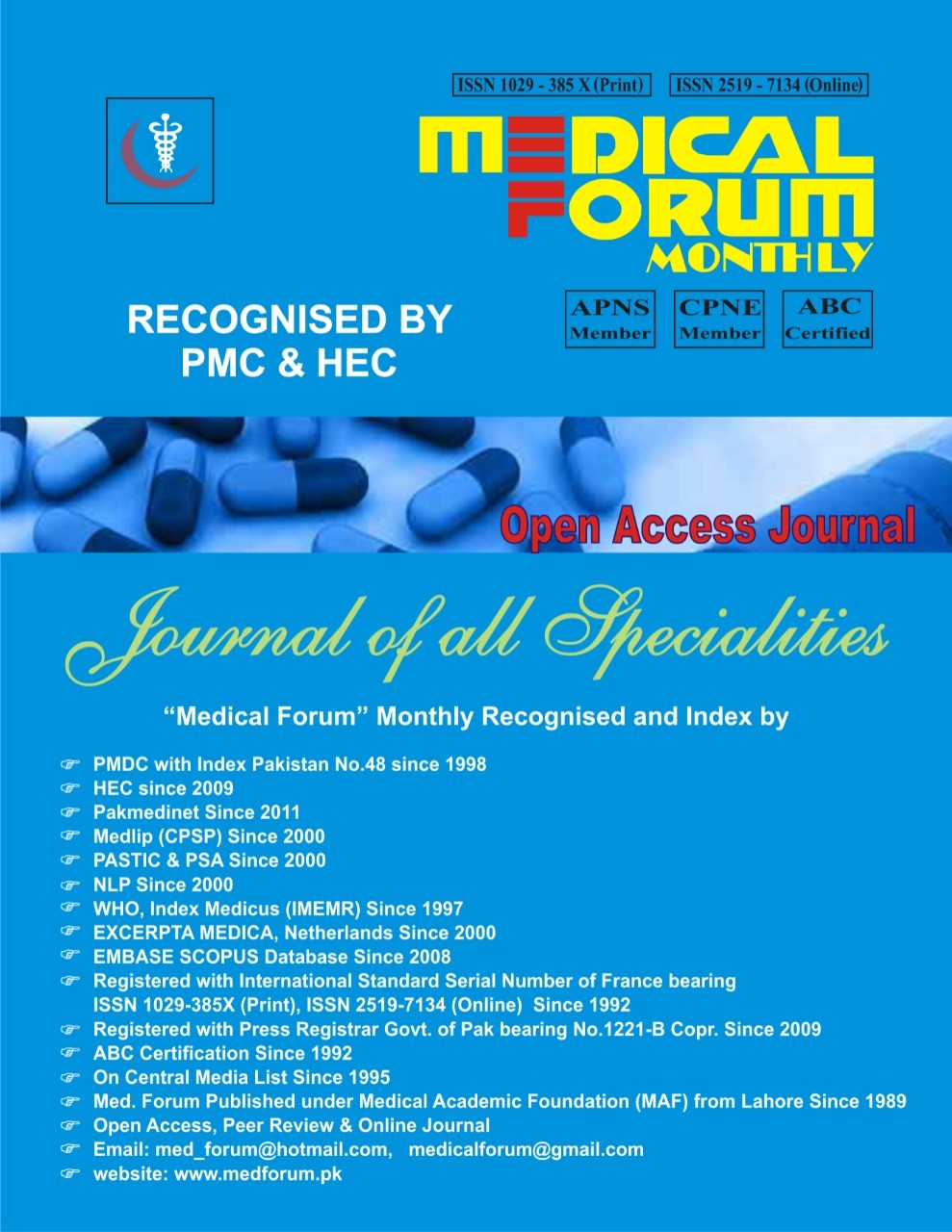
35.Creating High Cognitive Level MCQS will Drive Students to Clinical Reasoning? A Case Study
Imtiaz Uddin1, Halima Sadia2, Mehreen Lajber1, Husnain2 and Somia Afzal2
ABSTRACT
Objective: To develop clinical reasoning and problem-solving skills, medical students must be assessed at a high level of cognition according to Bloom's taxonomy. MCQs are the most employed assessment tools in medical education.
Study Design: Quantitative cross-sectional study
Place and Duration of Study: This study was conducted at the Department of Pharmacology, Bacha Khan Medical College Mardan from 2016 to 2019.
Materials and Methods: A quantitative cross-sectional study has been performed using 250 MCQs in the final assessment exam of Bacha Khan Medical College Mardan. Each MCQ was analysed separately by five independent assessors to score it according to modified Bloom's Taxonomy. Three students also analysed each MCQ for the level of cognition. Inter-rater reliability was determined both for students and faculty. Item Analysis for MCQs was also performed.
Results: The findings showed that for high-level MCQs, inter-rater reliability between faculty was in a good range of 0.78 while between faculty and students were low as 0.27. It was also found that most high-level MCQs were in the poor discriminative index.
Conclusion: Low inter-rater reliability between students and faculty shows that faculty may create an MCQ at a high level, but the students' approach towards it may be lower order. Along with improving the assessment standards, it is also necessary to explore other factors, especially the teaching strategies to foster high-level critical thinking and clinical reasoning in medical students.
Key Words: Clinical reasoning, MCQs, Item analysis
Citation of article: Imtiaz Uddin, Sadia H, Lajber M, Husnain, Afzal S. Creating High Cognitive level MCQS will Drive Students to Clinical Reasoning? A case study. Med Forum 2022;33(3):141-144.
